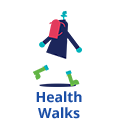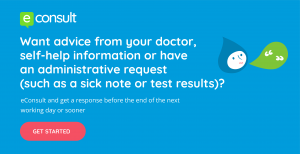
Since the NHS was created in 1948, the population has grown and people are living longer. Many people are living with long term conditions such as diabetes and heart disease, or live with mental health problems and may need to access their local health services more often.
To meet these needs, practices have begun working together and with community, mental health, social care, pharmacy, hospital and voluntary services in their local areas in primary care networks.
Primary care networks build on the core of current primary care services and enable greater provision of proactive, personalised, coordinated and more integrated health and social care. Clinicians describe this as a change from reactively providing appointments to proactively care for the people and communities they serve. Where emerging primary care networks are in place in parts of the country, there are clear benefits for patients and clinicians.
With many staff members working from home or off sick, practices are likely to find that resources are stretched.
The Department for Health and Social Care has issued an order under Regulation 3 (4) of the Health and Service Control of Patient Information (COPI) Regulations 2002 that allows practices to put aside their Duty of Confidentiality in order to share patient data where necessary to support each other and stop the spread of COVID-19.
As such, and to ensure patient care continues at an appropriate level, practices may arrange that neighbouring practices or partnered providers will “buddy” up and provide staff access to each
other’s clinical systems so that they can support one another with patient care. Should a practice then be required to close due to staff shortages, patients can be directed to the neighbouring practice who will be able to treat the patient as though they are their own. By making these arrangements, practices are working towards making patient information available at the point of care in the event that their current practice is not able to provide services as normal.
From 1st July 2019 a local primary care network has been formed between Angel Hill Surgery, Guildhall & Barrow Surgery, Mount Farm Surgery, Swan Surgery and Victoria Surgery serving our combined 63,000 patients in Bury St Edmunds and the surrounding villages. We have a Clinical Director who will plan and lead us in having a real impact on the shape of primary care in our local area. Part of this will be through better collaboration as we are able to employ more specialist clinical staff that a single practice could not do.
We will keep you updated as the Bury St Edmunds Primary Care Network develops.
For more information: https://www.england.nhs.uk/primary-care/primary-care-networks/











